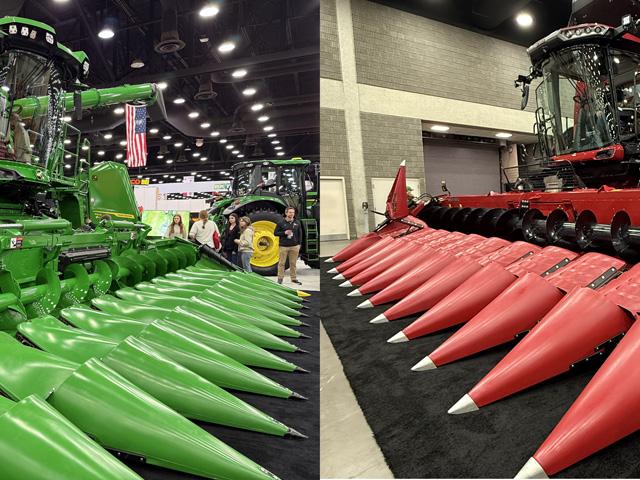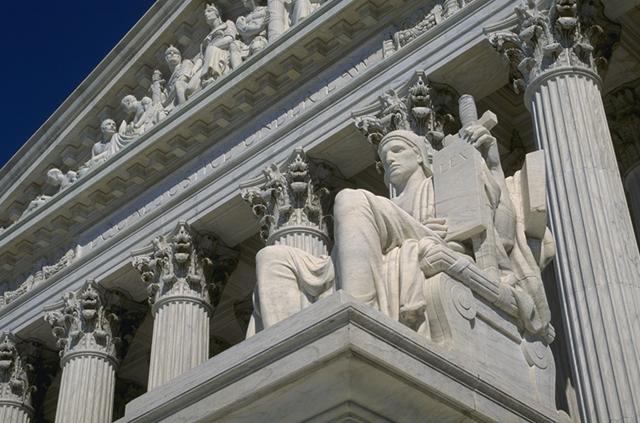SD Farmer Appeals to SCOTUS on Wetland
South Dakota Farmer Asks Supreme Court to Review 8th Circuit Ruling on Wetlands Case
LINCOLN, Neb. (DTN) -- Miner County, South Dakota, farmer Arlen Foster is keeping up the fight to prove a puddle on his farm is not a wetland, filing a petition with the Supreme Court on Thursday in the latest action in a 15-year saga.
Foster turned to the Supreme Court for the second time after a federal appeals court denied his petition.
The U.S. Court of Appeals for the Eighth Circuit recently rejected Foster's claim that the USDA's Natural Resources Conservation Service unjustly rejected his request for a review of a wetlands determination on an .8-acre tract of land.
Foster presented a new study to the NRCS and in federal courts that he said shows there is not a natural wetland preventing him from taking part in federal programs if he farms the ground. The new analysis paid for by Foster, found a tree belt installed on the property in 1936 causes massive snow piles in the field and is the source of a puddle.
The Foster petition treads the same legal ground as other cases pending before the Supreme Court.
In particular, Foster's attorneys at the Pacific Legal Foundation asked the court to consider two questions.
The first is "Whether a statute that provides that a wetlands certification 'remains valid and in effect until such time as the person affected by the certification requests review of the certification' requires an agency to treat a certification as invalid and not in effect when a person affected by that certification requests review."
The second question is whether the court should overrule what is called the Chevron deference -- a legal doctrine established by the court in a 1984 ruling in Chevron USA v. Natural Resources Defense Council.
The Chevron deference is the latitude federal judges give agencies on how they interpret statutes when disputes arise.
P[L1] D[0x0] M[300x250] OOP[F] ADUNIT[] T[]
That is, if statutory language is clear agencies are required to follow the letter of the law. If wording and context in a statute is ambiguous, a court must defer to the agency's discretion.
Foster's attorneys argue the petition for review should be granted because the Eighth Circuit's decision conflicts with statutory interpretation and Chevron deference precedents.
"A court must make a robust effort to determine the meaning of a statute before deferring to an agency's interpretation," Foster said in the new petition.
"The Eighth Circuit ignored this mandate. It did not attempt to apply the traditional tools of statutory interpretation to solve Swampbuster's interpretive puzzle. Instead, the court of appeals found ambiguity where none exists, effectively allowing the agency to rewrite the statute."
The petition said the text in the Swampbuster regulation does not "limit the right to request review" of a certification.
The Supreme Court is considering the Loper Bright Enterprises case that directly challenges the 1984 Supreme Court precedent known as the Chevron ruling.
In Foster's petition, his attorneys suggest Foster's case could wait for the outcome of the Loper Bright case. In that case a group of commercial fishermen appealed a court ruling on interpretation of federal fishery law.
"This court will likely answer the second question presented in this petition," Foster's petition said.
"In light of Loper Bright, this court may wish to hold the petition until that case is resolved and, if appropriate, grant vacate and remand in light of the decision there. This petition, like the petition in Loper Bright Enterprises, asks the court to overrule Chevron. In both Loper Bright Enterprises and this petition, the lower courts deferred to the agency even though the regulation was contrary to, and in direct conflict with, statutory text, context, and history."
The Eighth Circuit found NRCS's decisions to refuse to consider Foster's 2017 and 2020 review requests were not arbitrary and capricious because, "Foster failed to comply with the review regulation, as he never provided evidence that a natural event altered the site or that an error exists" in the NRCS's current wetland certification.
Foster argues in the new petition, however, that it is NRCS's review regulation --- not the Swampbuster statute -- that adds "barriers to review." That includes allowing reviews only if a natural event alters the topography of hydrology of the land in question.
"Despite the regulation adding restrictions on review where Congress imposed none, the courts below held that the review regulation is consistent with Swampbuster," Foster's petition said.
"In doing so, both courts eschewed a textual analysis for concern about 'agency efficiency.' Whatever the merits of such concern as a matter of policy -- which, under the Constitution's separation of powers, is for Congress and not the agency or the courts to determine -- it cannot override the plain text of the statute."
According to Swampbuster regulations, a final wetland certification remains valid and in effect as long as the land is devoted to agricultural use or until the person affected by the certification requests a review.
Read more on DTN:
"Foster Loses CWA Case in 8th Circuit," https://www.dtnpf.com/…
Todd Neeley can be reached at todd.neeley@dtn.com
Follow him on Twitter @DTNeeley
(c) Copyright 2023 DTN, LLC. All rights reserved.




